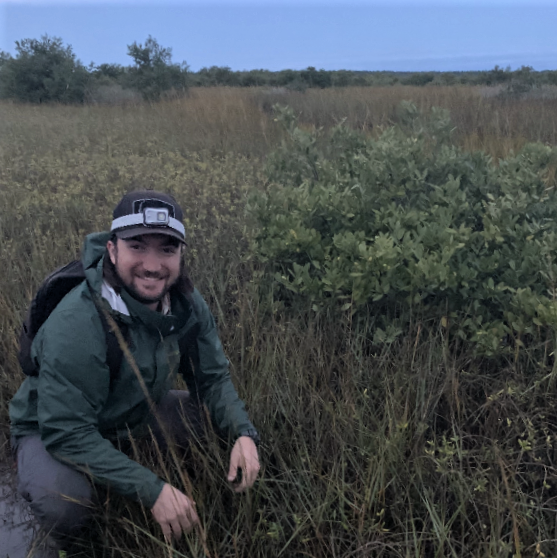GCA Coastal Wetlands Scholarship Award Recipients
Award Recipients in 2020
Jessica Balerna. Doctorate. University Of South Florida
 Study Title: Understanding relationships between depressional wetland ecohydrological condition and water management decisions in Tampa Bay, FL, USA
Study Title: Understanding relationships between depressional wetland ecohydrological condition and water management decisions in Tampa Bay, FL, USA
Study Summary: In Tampa Bay, protecting freshwater wetlands is vital for ensuring water security for future generations as these wetlands perform ecosystem functions that protect the quantity and quality of groundwater. When groundwater is over-pumped for drinking water, these wetlands lose their ability to perform these functions degrading groundwater further. I want to determine the thresholds where these functions are impaired and how residents and managers perceive and respond to these changes.
Matthew Sturchio. Masters. University of North Florida.
 Study Title: Exploring patterns of thermal acclimation of leaf respiration in a marsh-mangrove ecotone
Study Title: Exploring patterns of thermal acclimation of leaf respiration in a marsh-mangrove ecotone
Study Summary: The aim of the project is to test whether marsh grasses and mangroves show similar acclimation of leaf respiration to seasonal temperature changes at sites differing in seasonality, and whether acclimation is consistent between plants grown under ambient and warmed conditions. This project will help inform climate modelers of carbon fluxes in an ecotone marsh habitat, while also improving management strategies of coastal wetlands as sea level rises and temperatures increase.
Nora Hamovit. Doctorate. University of Maryland.
 Study Title: The Importance of Microbial Community Structure in Determining Methane Flux Variability of Resorted and Natural Freshwater Wetlands
Study Title: The Importance of Microbial Community Structure in Determining Methane Flux Variability of Resorted and Natural Freshwater Wetlands
Study Summary: The objective of the project is to better understand the variability of methane fluxes across freshwater wetlands, and between natural and restored wetlands. The approach is to look at both the role of microbial methane oxidation and production in determining this variability of methane flux rates. The novelty is the investigation of the microbial community structure, and the attempt to draw a connection between environmental drivers, microbial community, and ecosystem processes (methane flux).
